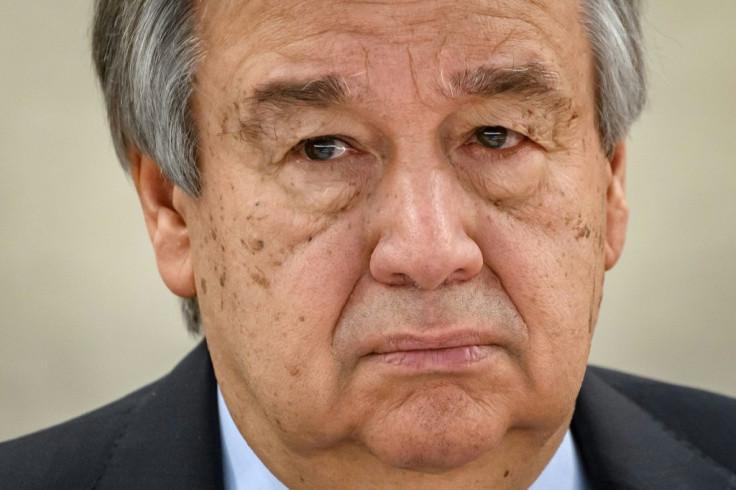Coronavirus: 'Worst Yet To Come' For Countries In Conflict, Says UN Chief

UN Secretary-General Antonio Guterres Friday renewed his call for a global ceasefire, urging all parties to conflict to lay down arms and allow war-torn nations to combat the coronavirus pandemic.
"The worst is yet to come," Guterres said, referring to countries beset with fighting like Syria, Libya and Yemen.
"The COVID-19 storm is now coming to all these theatres of conflict."
Guterres said there had been some progress following his March 23 call for peace, but that fighting still rages in a number of countries, hampering the ability to put into place plans to combat the virus.
"The need is urgent," Guterres said at a UN press conference.
"The virus has shown how swiftly it can move across borders, devastate countries and upend lives."
He said that parties to conflict in a number of countries, including Cameroon, the Central African Republic, Colombia, Libya, Myanmar, the Philippines, South Sudan, Sudan, Syria, Ukraine and Yemen, have expressed support for his call.
"But there is a huge distance between declarations and deeds -- between translating words into peace on the ground and in the lives of people," Guterres said.
"In many of the most critical situations, we have seen no let-up in fighting -- and some conflicts have even intensified."
While expressing gratitude for support of his earlier call from some 70 countries, NGO groups and religious leaders worldwide including Pope Francis, Guterres said more concrete work was necessary.
"We need robust diplomatic efforts to meet these challenges. To silence the guns, we must raise the voices for peace," he said.
Guterres did not mention the UN Security Council, where divisions between the United States and China have blocked action.
Since the beginning of the global pandemic, the Security Council has not met once on COVID-19, making no statement or joint resolution.
On Thursday the UN General Assembly adopted a resolution calling for international cooperation and "multilateralism" in addressing the virus, which has infected more than one million worldwide and killed more than 50,000.
Guterres appealed for developed countries and multilateral institutions to do more to aide poorer countries face the pandemic.
"To act early rather than later is essential... This is particularly true with the developing world," he said.
Guterres noted that the ceasefire in Idlib, Syria is holding but said it needs to be expanded to the entire country to allow full efforts to slow the coronavirus spread.
But he noted that expressions of support for a ceasefire by different factions fighting in Libya had not ended the violence.
"This war is now not allowing the response to COVID-19 to take place," he said.
"This is the moment to stop. It's not morally acceptable to continue with this conflict."
© Copyright AFP 2024. All rights reserved.





















